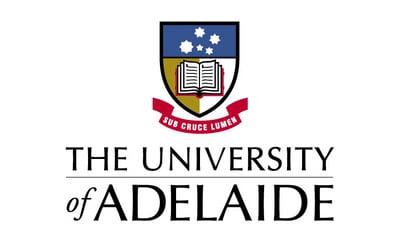Lumen Wirltuti:Warltati 2025 - Flipbook - Page 37

progressing rapidly to Associate Professor
and then Professor and earning recognition
for his own accomplishments as well as for
the success of his students.
“I find it fascinating to explore how
international students approach scientific
and practical challenges in my discipline.
Each country brings its own unique cultural
knowledge and perspectives, which can
significantly influence viewpoints. I believe
that Australian culture places considerable
emphasis on this aspect.”
Dr Mehdi Sharifani, Iran
Dr Mehdi Sharifani is a Professor at Gorgan
University of Agricultural Sciences and
Natural Resources in Iran. After studying at
the Waite campus and earning his PhD in
genetics and biotechnology in 1999, Mehdi
began his academic career at Gorgan,
Mehdi has successfully established the
post-harvest physiology and biotechnology
laboratories at Gorgan University, along
with a faculty orchard, which supports
better education of his students. His
commitment to academic excellence is also
evident through his numerous presentations
at international congresses, conferences and
symposiums, where Mehdi has consistently
contributed to advancing global knowledge
in his field.
Recognising that passion is essential for
success, Mehdi advises students pursuing
agricultural sciences to let their interests
inform their direction. “I recommend that
new BSc students explore their passions
deeply. Meanwhile, postgraduate students
should broaden their horizons by engaging
with esteemed scientists, specialists,
researchers and business leaders.”
Practising this principle throughout his
own career, Mehdi has written and edited
five academic books, which have become
valuable resources for both students and
professionals.
Driven by his passion for education,
Mehdi is eager to further his teaching
career by becoming a supervisor and
lecturer for postgraduate students at an
international university. He also aims
to collaborate on significant global
projects and ultimately serve as an
advisor to companies striving for
better qualitative production.
Global impact
Our University partners with many of
the world’s leading higher education
institutions, research centres, corporations
and government agencies - more than 290
partners in 47 countries.
This allows for the free flow of people
and ideas – and can help shape future
global leaders, providing the scale required
to address some of our planet's most
pressing issues.
An example of this are the 11
researchers from top global institutions –
including Tsinghua University in China
and the University of Oxford in the United
Kingdom – who join the University of
Adelaide this year as International Fellows
Award (IFA) recipients.
Introduced in 2023, the IFA program
brings some of the world’s best research
minds to our University to collaborate on
global challenges.
Among the recipients is Dr Ana Maria
Vargas Falla (pictured), an interdisciplinary
climate researcher from Lund University in
Sweden, who will spend time at our
Environment Institute.
Ana’s research project will explore how
to address the double crises of biodiversity
loss and climate change through knowledge
dialogues.
She will examine the relationship
Indigenous communities in Australia and
Colombia have with nature and how their
participation in climate and biodiversity
initiatives can inform more inclusive and
sustainable models of environmental
governance.
“While global calls for sustainability
grow, the role of plural knowledges –
Indigenous, traditional, and scientific –
and local resistance in shaping just and
effective adaptation strategies remains
underexplored,” Ana says.
“In the Amazon, Indigenous ecological
practices have supported biodiversity and
climate adaptation for centuries. In Australia,
Indigenous communities and farmers have
developed land and water management
strategies to cope with extreme conditions.
LUMEN
“Comparing these systems reveals both
parallels and differences that can inform
inclusive adaptation strategies, which value
biological and cultural diversity.”
In addition to her research, Ana is
piloting a Plural Knowledge Lab – a
teaching initiative that encourages students
to engage in global dialogues and learn
about diverse knowledge systems.
Welcoming Ana to the University, the
People, Nature, Climate Lead at the
Environment Institute, Professor Melissa
Nursey-Bray, says: “At a time of global
crisis, I welcome the opportunity to work
with Ana to develop a collaboration around
plural knowledges, and to envisage new
ways of imagining solutions that span and
connect cultures, disciplines and countries.”